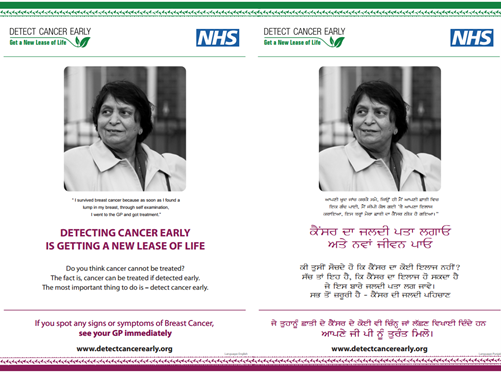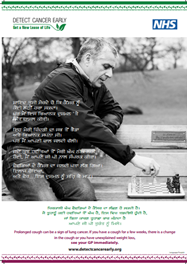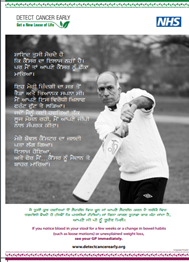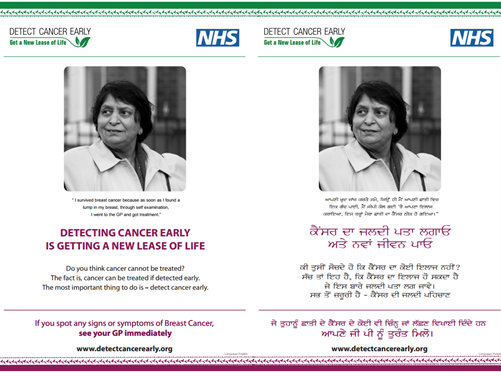
NHS ‘Detect Cancer Early’ Case
Background
There are close to 165,000 cancer related deaths in the UK every year. With 450 deaths every day, cancer accounts for a whopping 28% of all deaths in the UK (Source - www.cancerresearchuk.org). Cancer research and awareness are one of the top priorities for any health and medical body.
After the completion of the national‘Cancer Chancer’ campaign in 2012, GMPHN (Greater Manchester Public Health Network) did a research within the Greater Manchester area to access its impact. Their research concluded that the awareness of the campaign and of cancer still left much to be desired. People from BAME backgrounds either did not warm up to the message of getting themselves tested or just did not find it relevant to them.
The Greater Manchester area has a sizable multicultural ethnic population with a significantly high percentage of Pakistanis and Bangladeshis. These are close knit communities with a very strong association to their culture, language and customs. Culturally, cancer is not something that is talked about in the community and is a taboo to talk about, even if someone is suffering. People genuinely believe that they will not suffer from ailments like cancer.
With a view of increasing the awareness for cancer screening in the Greater Manchester area, GMPHN asked us to develop a bespoke targeted campaign that would talk to the ethnic population within the region about cancer awareness and the need to get tested early.
Challenge
How do we cut across to a community where ‘cancer’ is a taboo word? How do we break the notion of denial and get people to act upon the message of getting tested early for cancer when it has the best chance to be treated?
Insight
Research suggested that 77% of British Asians surveyed feel that mainstream messaging and advertising has no relevance to them. The mainstream advert – ‘Cancer Chancer’ did not cut across the South Asian community as it was difficult to understand and it further culturally alienated this audience as they could not connect with its humorous treatment. Clearly the lack of cultural nuances andthe language in the messaging made them feel that the communication is talking to someone else.
Campaign
Armed with this insight, we developed a high frequency TV led campaign around the Indian, Pakistani and Bangladeshi communities and talked about the most rampant cancers – lung cancer, breast cancer and bowel cancer. We used a wide spectrum of cultural anchors to create relevance with the communities. These were Cricket, which is popular not only in the counties but across the Indian sub-continent; Chess, which is a favourite pastime of the elders in the communities; emphasis on key relationships (mother and daughter in-law) which is a hallmark of the communities to an everyday occasion like shopping. The message itself was delivered through an elderly multicultural cast which further increased relevance. To top it all, the adverts were translated and aired in Hindi, Urdu, Punjabi Sylheti and English languages. Overall, these TVCs created a personal connect with the audience.
But we did not stop here. The TV campaign was just the tip of the iceberg. We created amicrosite (http://detectcancerearly.co.uk/) where information on these cancers was available in the languages. This website and the message around cancer awareness was further spread into the community through posters and leaflets created for each type of cancer in the different languages. These were widely displayed in the key high traffic ethnic areas in places like mosques and shops which the community frequented.
Posters
Community Outreach
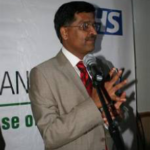
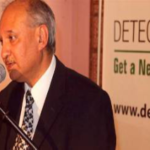
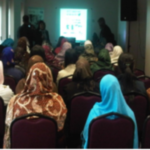
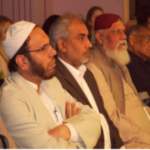
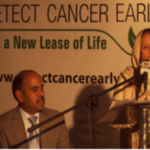
These mediums ensured that the general ethnic population in the Greater Manchester area got the message clearly and simply, in a manner that they could connect to. But there is still a part of the population thatwork in the informal economy and spend a lot of time in the trade. To target them, we took some innovative steps like bespoke car fresheners in taxis, communication in restaurants and even 1-1 talks in surgeries and community centres with local qualified experts who were trusted by the community, on the importance of getting tested for cancer.
Result
Through the multiple touchpoints and with the heightened relevance of the message, the campaign was successful in driving the ethnic South Asian communities of the Greater Manchester area to get themselves tested for the cancers with screening figures increasing by more than 53% as per post campaign research conducted by GMPHN. The execution of the campaign was so successful that the campaign was eventually taken national by Public Health England and rolled out as a National Campaign for the BAME segment.
